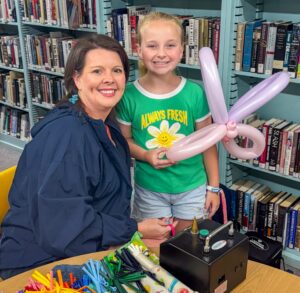From the Extension: Planting Guide for Home Gardening in Alabama
Successful home gardening comes with careful planning and constant attention. Gardeners must consider the garden site, timing, fertilizer, varieties, pest control and additional factors.
SITE
Select a site exposed to full sun. Too many gardeners try to grow vegetables in competition with trees, fences or shade from buildings. The soil should be well drained and free of harmful chemicals, oil, ashes, mortar and so forth.
You can improve your garden soil by adding organic matter, like compost, leaf mold or well-rotted sawdust. Work it into the soil in the late fall.
LIME AND FERTILIZER
A soil test is the best way to determine lime and fertilizer needs. The Franklin County Extension office has information about soil tests. Testing at least every 3 years is a good idea. For most vegetables, the soil pH should be around 6.0 to 6.5. To be effective, the lime must be mixed into the soil before planting. Long-season crops such as tomatoes, cabbage, pepper, okra and potatoes need more fertilizer than short-season crops. Experience and close observation are the best guides for additional side-dressing.
SEED AND PLANTS
Seeds are cheap, so get the best available. Don’t seed too thickly. Plant small seeds, such as turnips and carrots, about 1⁄4 to 1⁄2 inch deep. Plant larger seeds, such as beans, cucumbers and peas, about 1 inch deep.
Use only stocky, healthy, fresh plants. Always water transplants to settle the soil around roots. Set tall plants deeper in the ground than they grew originally.
IRRIGATION
Water is essential for a top-notch garden. During long dry periods, soak the garden thoroughly once a week; don’t just sprinkle daily. Light, frequent irrigation helps only during the period of seed germination. Overhead irrigation, especially late in the afternoon, is likely to spread certain foliage diseases. If you use overhead irrigation, do so earlier in the day so plants can dry before night.
PEST CONTROL: WEEDS, DISEASE AND INSECTS
WEEDS: To control weeds, use mulch. Deep cultivation after plants are older will do more damage than good. Chemical weed killers are not usually recommended for home gardens. Before using a weed control product, get full information on how to use it and what crop it should be used on.
DISEASE: The best practices in disease control are rotation, clean seed, resistant varieties when available, early planting, plowing under old crop debris, mulching and seed treatment. Chemical fungicides may be used to control some common leaf diseases of tomatoes, squash, cucumbers and cantaloupes. If the garden is heavily infested with nematodes, either move the garden or heat the soil through a process called soil solarization.
INSECTS: For a successful garden, you must control insects. Early planting will miss some insects, but usually you’ll have to use insecticides. Use biosensitive insecticides as your first choice to treat for insect problems in the garden. Safer insecticidal soaps will help control aphids and other soft-bodied insects early on. Malathion is a good all-around material for aphids and red spider mites and gives some worm control. Carbaryl (Sevin) is another effective material, especially for bean beetles, tomato and corn earworms, cucumber beetles, and pickleworms. Bacillus thuringiensis or Bt (Dipel, Thuricide) is an excellent biological control for cabbage worm or cabbage looper.
Use all chemicals—for insects, weeds, or nematodes—according to directions on the label. The label will tell you the amount to be used, the crops to use it on and the number of days between application and harvest. The label is one of the most important pieces of garden literature available. Read and heed it for effective use and safety.
HARVESTING
The main reason for a home garden is to produce high-quality vegetables. Harvest often to get vegetables at the proper stage of maturity. If beans, okra, cucumbers and so on are left to mature fully, the plant will stop producing. Early morning harvest, before vegetables absorb heat from the sun, is best for most vegetables. Freeze or can the surplus if you want to enjoy your garden all year.








